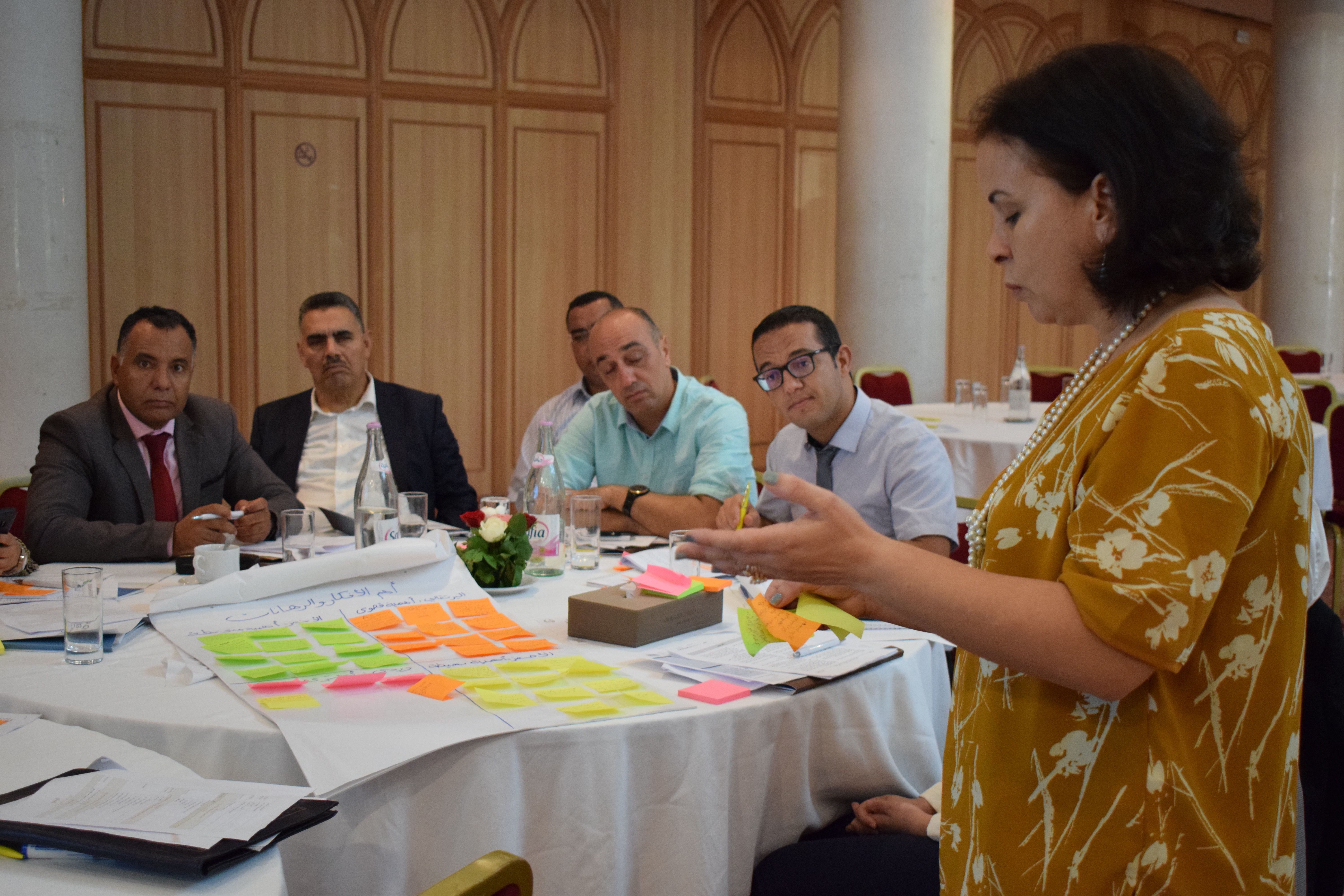The organic law governing the Tunisian Audit Court (AC) will be applied from 1 January 2020 onwards. This law defines the new powers of the AC and affirms its crucial role of providing financial accountability and jurisdiction. The AC is one of a number of independent institutions that provide additional checks and balances to Tunisia’s democratic institution.
Meeting on 19 and 20 October 2019, more than 70 members of the Audit Court (magistrates, commissioners, administrative and financial staff, members of the financial jurisdiction of the High Judiciary Council) reviewed the new framework. The first plenary session was an opportunity to shed light on the novelties of the law and to clarify any additional tasks conferred on the Court in order to better anchor its central role as a high financial jurisdiction respecting the principles of accountability and transparency.
Several workshops have allowed participants to dive deeper into five themes addressing directions to be taken for the proper implementation of the organic law. The main objective of the working groups was to determine a roadmap for each of the selected topics in particular: Management shortcomings, Reporting follow-up, Assistance to the executive and legislative powers and certification of accounts, Administrative and financial management, Jurisdictional procedures.
 Participants worked in groups to focus on different topics addressing the new organic law
Participants worked in groups to focus on different topics addressing the new organic law
These various working sessions allowed members of the Audit Court to meet and formulate their needs with a participatory approach and to draw up a general plan of action for the effective implementation of the law. Other sessions supported by DRI Tunisia will be planned to deepen each theme and thus implement the actions to be undertaken as soon as possible.
DRI supported the event in the framework of its project “Support to Constitution Implementation in Tunisia – Phase III”, funded by the German Ministry of Foreign Affairs.







